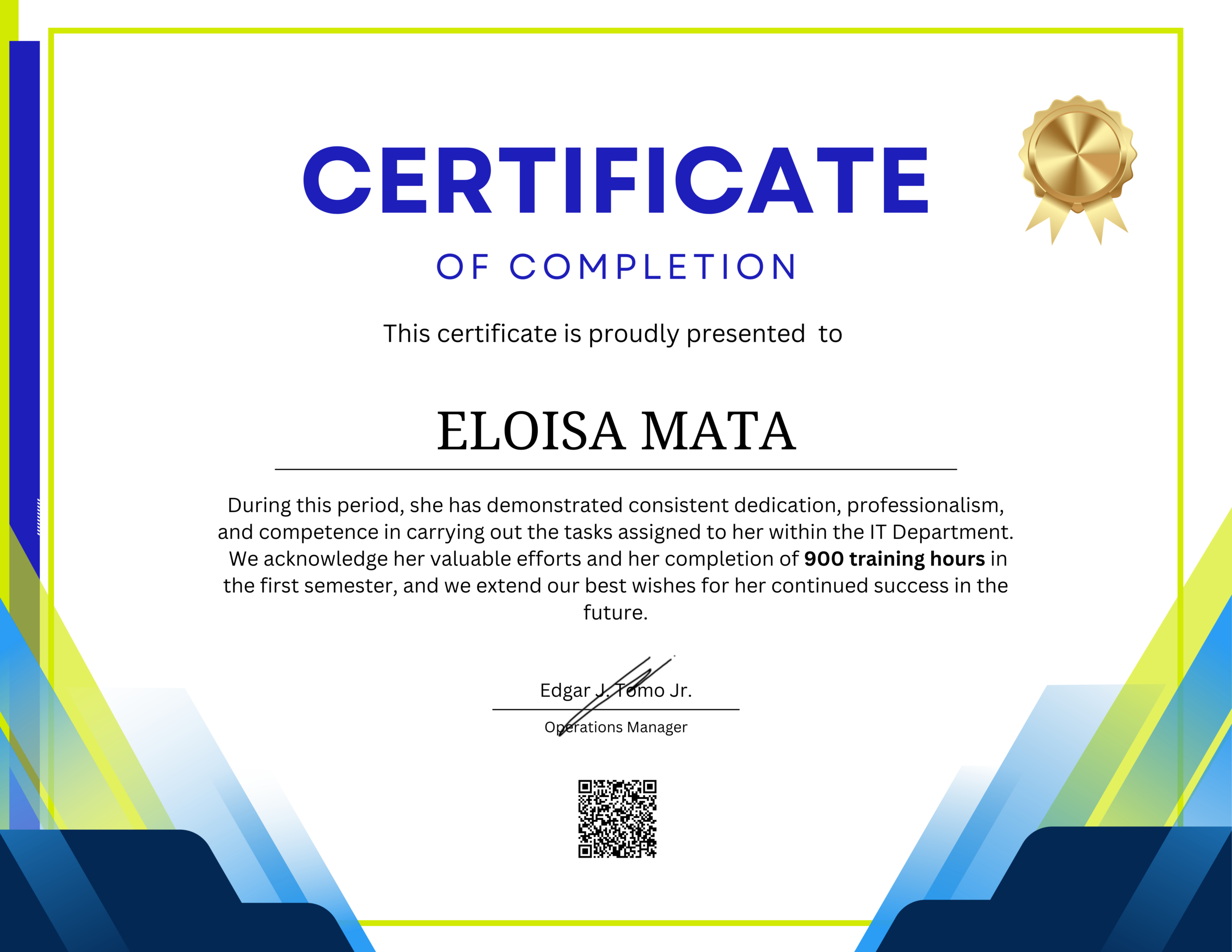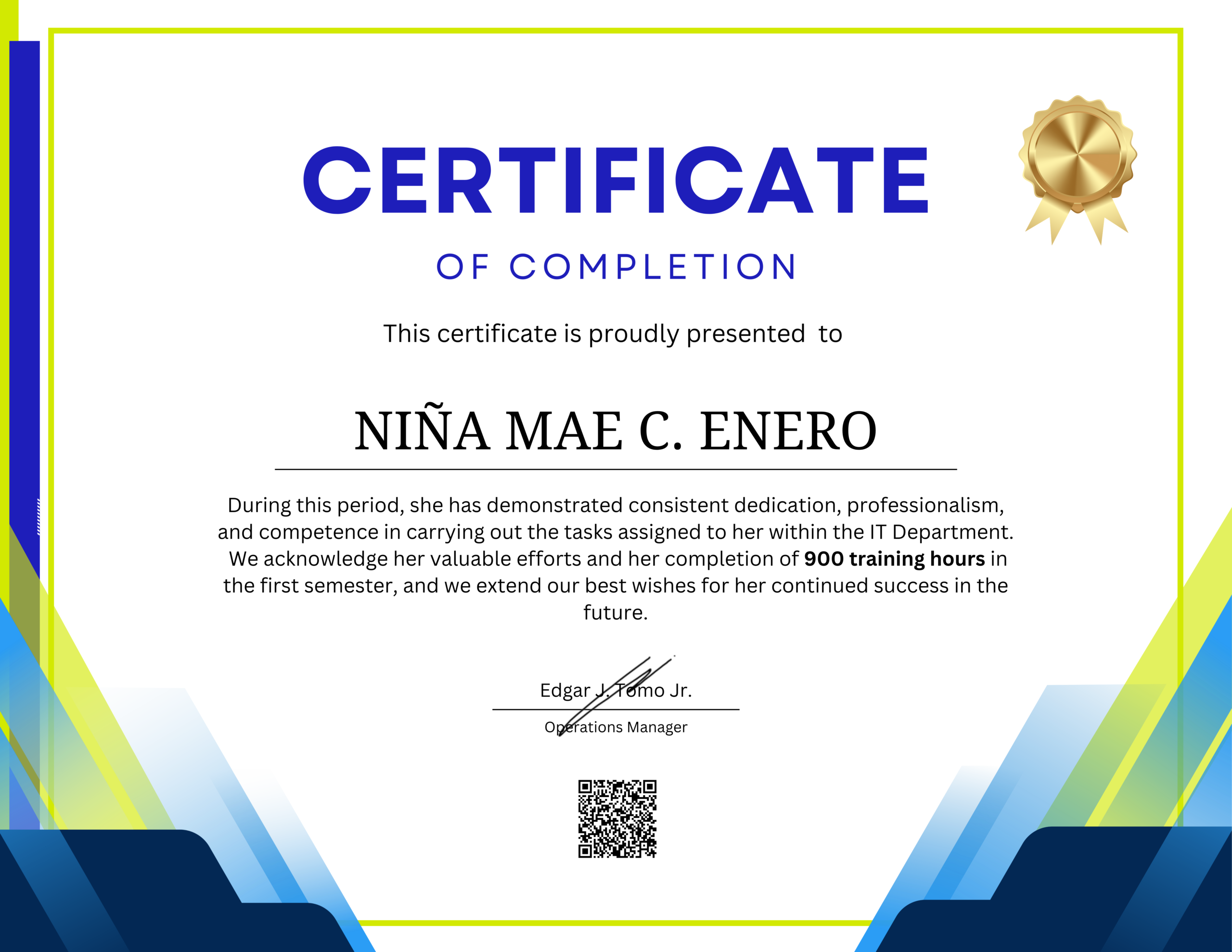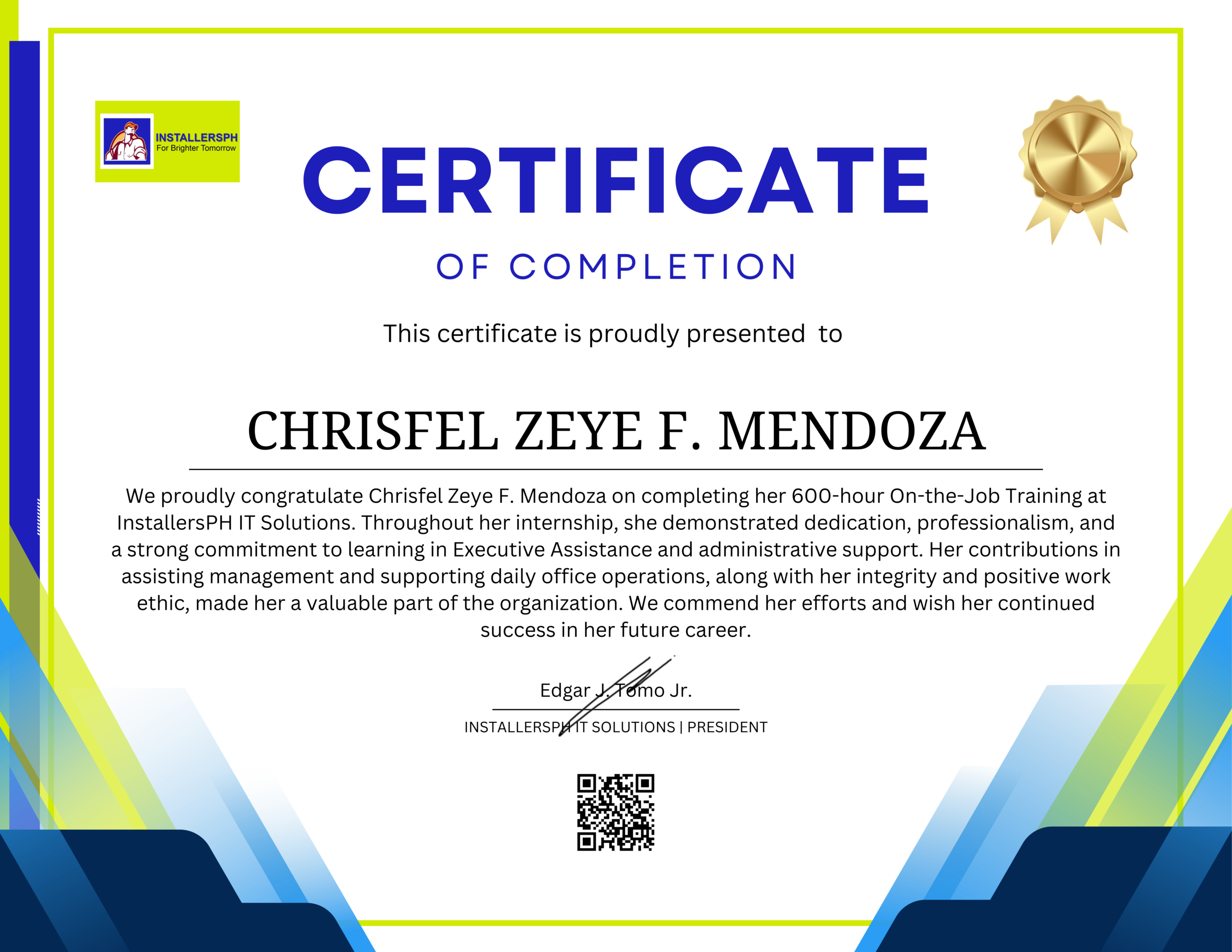The On-the-Job Training Experience of Niña Mae C. Enero Acknowledging Dedication in IT On-the-Job Training. During her on-the-job training period, she demonstrated consistent dedication and a strong sense of responsibility in fulfilling …
CCTV Cameras and Privacy: Striking the Right Balance.

Introduction
Closed-circuit television (CCTV) cameras have become ubiquitous in modern society, deployed in various public and private spaces for security, surveillance, and crime prevention purposes. While CCTV systems offer numerous benefits, including enhanced safety and crime deterrence, they also raise significant concerns regarding privacy infringement. Achieving the right balance between the utility of CCTV cameras and individuals’ right to privacy is a complex challenge that requires careful consideration of legal, ethical, and technological factors. In this article, we will explore the implications of CCTV cameras on privacy, examine current regulatory frameworks, and discuss strategies for striking an appropriate balance between security and privacy concerns.
The Rise of CCTV Cameras
CCTV cameras have proliferated rapidly in recent decades, fueled by advancements in technology and increasing concerns about public safety and security. Originally developed for surveillance purposes in industrial settings, CCTV systems are now commonly found in various environments, including streets, public transportation hubs, commercial establishments, and residential neighborhoods. These cameras serve diverse functions, such as monitoring traffic flow, deterring criminal activity, preventing vandalism, and assisting law enforcement investigations.
Benefits of CCTV Cameras
Proponents of CCTV cameras highlight their numerous advantages in enhancing public safety and security. One of the primary benefits is the deterrence of criminal behavior. Research has shown that the presence of CCTV cameras can significantly reduce crime rates in monitored areas by creating a perception of surveillance and increasing the likelihood of offenders being apprehended. Additionally, CCTV footage can provide valuable evidence for law enforcement investigations, helping to identify suspects, reconstruct events, and prosecute criminal activities.
Moreover, CCTV cameras contribute to the promotion of safety and order in public spaces, fostering a sense of security among residents, workers, and visitors. In commercial settings, such as retail stores and shopping malls, CCTV systems are instrumental in preventing theft, shoplifting, and other forms of retail crime. Furthermore, CCTV technology has evolved to offer advanced features such as facial recognition, license plate recognition, and real-time video analytics, which enhance the effectiveness of surveillance operations and improve response times to security incidents.
Privacy Concerns
Despite their undeniable benefits, CCTV cameras also raise significant concerns regarding privacy infringement and surveillance creep. The widespread deployment of surveillance cameras in public spaces has led to debates about the erosion of privacy rights and the normalization of constant surveillance. Critics argue that ubiquitous surveillance undermines individuals’ autonomy, freedom of movement, and right to privacy, creating a society where citizens are constantly monitored and surveilled by authorities and corporations.
One of the primary concerns associated with CCTV cameras is the potential for indiscriminate and intrusive surveillance. In many cases, surveillance cameras capture individuals’ activities without their consent or awareness, raising questions about the boundaries of permissible surveillance and the protection of personal privacy. Furthermore, the proliferation of CCTV systems equipped with advanced features such as facial recognition raises additional concerns about the collection, storage, and use of biometric data without adequate safeguards.
Legal and Regulatory Frameworks
To address the privacy implications of CCTV cameras, governments and regulatory bodies have implemented various legal frameworks and guidelines to govern their use. These regulations aim to balance the legitimate interests of security and public safety with the protection of individuals’ privacy rights. In the United States, for example, the use of CCTV cameras is subject to federal and state laws, including the Fourth Amendment, which protects against unreasonable searches and seizures, and the Electronic Communications Privacy Act (ECPA), which regulates the interception of electronic communications.
Additionally, many countries have enacted specific legislation or regulations governing the use of CCTV cameras in public spaces, requiring organizations and authorities to adhere to certain principles and standards to safeguard privacy. These regulations often mandate measures such as obtaining consent for surveillance, providing notice to individuals about the presence of cameras, limiting the retention and use of surveillance footage, and implementing security measures to prevent unauthorized access to recorded data.
Striking the Right Balance
Achieving the right balance between the utility of CCTV cameras and individuals’ right to privacy requires a multifaceted approach that considers legal, ethical, and technological factors. First and foremost, policymakers must ensure that surveillance activities are conducted in accordance with applicable laws and regulations, with adequate safeguards in place to protect privacy rights. This may involve conducting privacy impact assessments, establishing clear guidelines for the deployment and operation of CCTV systems, and implementing mechanisms for oversight and accountability.
Furthermore, organizations and authorities responsible for operating CCTV cameras should prioritize transparency and accountability in their surveillance practices. This includes providing clear signage indicating the presence of cameras, informing individuals about the purpose of surveillance, and establishing procedures for handling and storing surveillance footage in a secure manner. Additionally, organizations should adopt privacy-enhancing technologies and best practices to minimize the collection and retention of unnecessary personal data and mitigate the risks of data breaches or misuse.
Educating the public about the benefits and limitations of CCTV cameras is also essential for fostering informed debate and dialogue about surveillance and privacy issues. By raising awareness about the purpose and scope of surveillance activities, individuals can make more informed decisions about their own privacy preferences and advocate for policies that strike an appropriate balance between security and privacy concerns.
Conclusion
CCTV cameras play a vital role in enhancing public safety and security, but their widespread deployment raises significant concerns about privacy infringement and surveillance creep. Achieving the right balance between security and privacy requires a careful and nuanced approach that considers legal, ethical, and technological factors. By adhering to applicable laws and regulations, prioritizing transparency and accountability, and fostering public awareness and engagement, policymakers, organizations, and individuals can work together to ensure that CCTV cameras are used responsibly and respect individuals’ privacy rights in the digital age.
Related Articles
The On-the-Job Training Experience of Niña Mae C. Enero Acknowledging Dedication in IT On-the-Job Training. During her on-the-job training period, she demonstrated consistent dedication and a strong sense of responsibility in fulfilling …
The On-the-Job Training Experience of Chrisfel Zeye F. Mendoza Introduction. On-the-Job Training (OJT) plays a vital role in preparing students for the professional world by allowing them to apply academic knowledge in …



